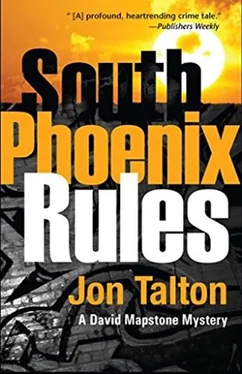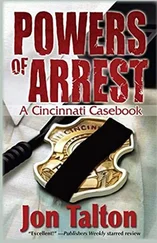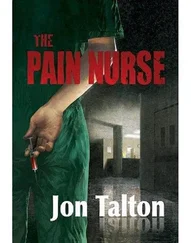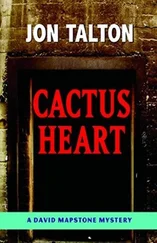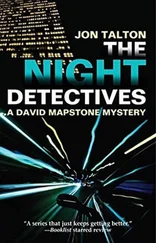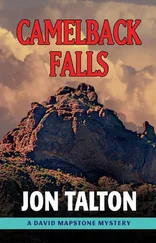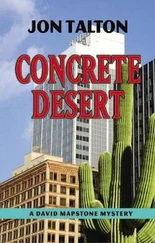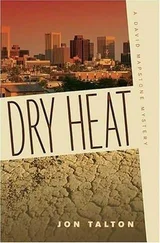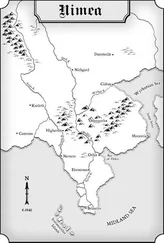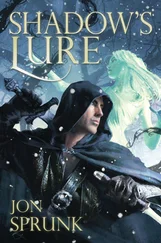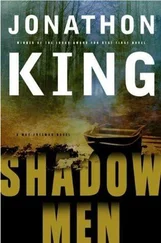For the first time, I looked at Robin’s legal pad as more than a painful relic. I pulled it over and started reading the notes she had made on that long afternoon she spent alone, after she had given me a kiss at the light rail station near the central library. Soon, I was making my own notes on a separate pad.
Peralta answered on the second ring.
“Have you murdered anyone?”
“No.”
“And you just happened to see the hit woman walking down the street several miles from your house.”
“I was just a concerned citizen.” When he didn’t answer, I went on. “You still have the contacts to get a fast-track check on military records…”
He reluctantly said yes.
I read him the information from the aged dog tags that I held in my hand.
Then I called a friend back east. She was an expert in the history of the Mafia. It was late her time, but she was indulgent. Something in my voice, perhaps. When I ended the call, all I could do was lay my head on the desk.
***
The next morning, I was at the ASU Hayden Library early. The Arizona Historical Foundation archives were a starting point at least, and by ten, a preservationist named Susan had set me up at a table where I was surrounded by the comforting mass of gray Hollinger boxes.
The Japanese internment of World War II was one of the sorrier chapters in American history, when more than 100,000 Japanese-Americans and Japanese living in the country were forcibly moved from the West Coast into concentration camps. The reasoning had been fear of a Japanese invasion or sabotage of war industries, even though there was never an instance of sedition or espionage. But it had been arbitrary: Hardly any Japanese living in Hawaii, which had actually been attacked, were interned.
No matter: the anti-Japanese feelings that had long simmered, especially in California, were unleashed by Pearl Harbor. Franklin Roosevelt signed executive order 9066 in 1942. Many were brought to camps constructed in Arizona, including one at Poston, in the western desert. Most lost everything and after the war had to start over. Today, conservatives were defending this move by the otherwise hated FDR as a useful precedent for profiling Muslims living in America. Everything comes around.
At my crowded table, like a credible historian, I moved through primary source material, the recollections and documentation of people who had actually been there. The Frances and Mary Montgomery Collection-they had been teachers at the Gila relocation camp south of Phoenix. The Wade Head Collection-he had been the director of the Colorado River War Relocation Center at Poston. I set aside the memoranda about camp construction and organization. Letters about individuals and families took more of my time.
It was a rich archive. I wanted to spend a month there and listen to the hours of oral histories. There was no time. And I couldn’t find much on the relocation in Phoenix itself. It was probably there. Everything is somewhere, if you look long enough-ask the archeologists who found ancient Jericho. But the records concerning Arizona related to the camps themselves. The same was true of the secondary source materials, such as the scholarly articles and a couple of Ph.D. dissertations.
I was ashamed to know so little. I remember Grandmother telling me about the German prisoners of war being marched into town to work. About the Japanese, she and grandfather said little. I did remember one thing: the line that separated the families to be relocated from those who could stay ran along U.S. Highway 60-Van Buren Street and Grand Avenue. Those living south of the boundary, including the Japanese farmers along Baseline Road, were sent to the camps.
I found a couple of good academic articles, but they were mostly confined to Japanese immigrants to Phoenix and Maricopa County prior to World War II. First-generation, or Issei, families began arriving early in the 20th century. The first American-born child came around 1906. The state’s Alien Land Law of 1921 prohibited property ownership by “Orientals,” but it was overturned in 1935. The Japanese were innovative farmers and encountered prejudice and envy, but they also built good relationships with many Caucasian farmers and business owners. Kajuio Kishiyama was among the first farmers near the South Mountains, first leasing land and then buying it. Members of the Nakagawa family were also early growers. Both had been interned during the war. After the war, they came back and started over.
With these flimsy threads, I tried to narrow my search.
Peralta called at one. He had the information that I needed.
***
Back home, I pulled out phone books, opened up Google on the Mac, and started making calls. It was tedious work but at least it kept the panic attacks away. On the thirty-seventh try, I reached a man who took my name and number, and said he would talk to his cousin. In an hour, a young woman called. After some persuading, she said she would be willing to talk with me. She lived near Los Angeles and agreed to meet me the next day.
I made another call, to a cell phone I was sure couldn’t be traced, not that I even wanted to try.
“I need another forty-eight hours.”
“I knew you’d fuck me over.” The sandpaper voice. “I should have killed you when I had the chance.”
“It didn’t work out that way.”
“Maybe you’re afraid to get your hands dirty, history teacher.”
“You know better than that.”
“Why should I even trust you? You’re a former cop?”
“Because you want more than me.”
He didn’t speak for a long time. Then, “I’ll give you twenty-four. That’s all. Then we’re coming for you, this time for keeps. We’ll start by cutting off your finger.”
“Whatever.”
***
I flew into Burbank and rented a car, driving an hour through the dismal traffic to a comfortable house with a view of the San Gabriel Mountains. It was not a very smoggy day. Phoenicians always talk about not wanting to become “another L.A.” It’s the smugness of yokels. Phoenix had become another L.A. in all the bad ways, including the gangs. It lacked almost all the good things, from the extensive rail transit to the cool vibe to the world-class universities and talent. Oh, and there was the ocean-and mountains, when you could see them, as magnificent as the San Gabriels.
The young woman I had spoken to on the phone only had a youthful voice. She was close to my age, but attractive with shoulder-length hair, large eyes, and a fine figure in an expensive suit. It turned out that she worked in the L.A. County District Attorney’s Office and was not prepared for any bullshit from David Mapstone, of late the historian for the Maricopa County Sheriff.
“I checked you out,” she said, standing in the doorway.
“Did I pass?”
My flirting skills still needed work. She said, “Let me see them.”
I handed her the plastic bag with the dog tags. She took them out, held them in the sunlight, and ran a finger over the metal.
“Oh, my God.”
She introduced herself as Christine Tanaka Holmes, stepped aside, and let me come in.
She led me back into a large family room lighted by an arcadia door that led out onto a sumptuous garden. But much of the interior space was taken up with the tools of old age: a walker, a four-footed cane, a wheelchair with a thick, black cushion as the seat. And in a print armchair sat a small, very elderly woman with hair the color of lead pulled back into a bun. She assessed me with bright eyes.
The deputy D.A. bent down on her haunches.
“GiGi, this is David Mapstone from Phoenix. This is my great-grandmother, Sarah Kurita. GiGi, he brought Johnny’s dog tags home.”
Читать дальше
